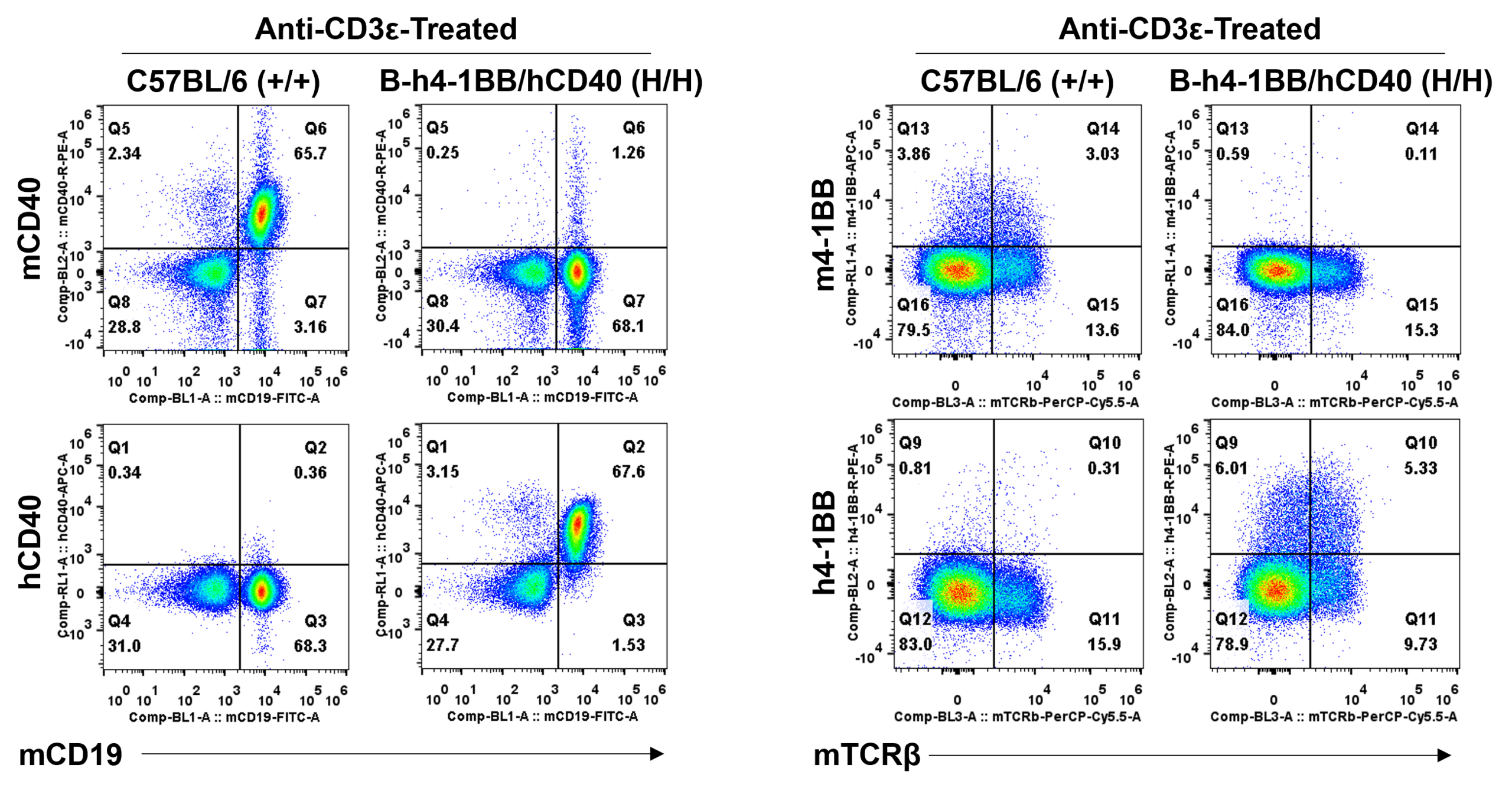Basic Information
-
Gene Targeting Strategy

-
Gene targeting strategy for B-h4-1BB/hCD40 mice. The exon 2-7 of mouse 4-1bb gene that encodes the extracellular domain was replaced by human 4-1BB counterpart gene in B-h4-1BB/hCD40 mice. The exon 2-7 of mouse Cd40 gene that encodes the extracellular domain was replaced by human CD40 exon 2-7 in B-h4-1BB/hCD40 mice.
-
Protein Expression Analysis

-

Strain specific CD40 and 4-1BB expression analysis in homozygous B-h4-1BB/hCD40 mice by flow cytometry. Splenocytes were collected from wild-type mice (+/+) and homozygous B-h4-1BB/hCD40 mice (H/H) stimulated with anti-CD3ε in vivo (7.5 μg/mice for 24 hours, i.p.), and analyzed by flow cytometry with species-specific anti-CD40 antibody and species-specific anti-4-1BB antibody . Mouse CD40 and 4-1BB were detectable in wild-type mice. Human CD40 and 4-1BB were exclusively detectable in homozygous B-h4-1BB/hCD40 mice (H/H) but not in wild-type mice.
-
Combination Therapy of Anti-Human 4-1BB Antibody and Anti-Human CD40 Antibody

-

Antitumor activity of anti-human 4-1BB antibody combined with anti-human CD40 antibody in B-h4-1BB/hCD40 mice. (A) Anti-human 4-1BB antibody (in house) combined with anti-human CD40 antibody (in house) inhibited MC38 tumor growth in B-h4-1BB/hCD40 mice. Murine colon cancer MC38 cells were subcutaneously implanted into homozygous B-h4-1BB/hCD40 mice (female, 6-8 week-old, n=5). Mice were grouped when tumor volume reached approximately 400 mm3, at which time they were treated with h4-1BB and hCD40 antibodies. (B) Body weight changes during treatment. As shown in panel A, combination of h4-1BB and hCD40 antibodies were more efficacious in controlling tumor growth in B-h4-1BB/hCD40 mice. B-h4-1BB/hCD40 mice provide a powerful preclinical model for in vivo evaluation of anti-human 4-1BB and CD40 antibodies. Values are expressed as mean ± SEM.
-
Summary

-
Protein expression analysis:
Human CD40 and 4-1BB were exclusively detectable in homozygous B-h4-1BB/hCD40 mice (H/H) but not in wild-type mice.
In vivo efficacy study:
Combination of h4-1BB and hCD40 antibodies were more efficacious in controlling tumor growth in B-h4-1BB/hCD40 mice. B-h4-1BB/hCD40 mice provide a powerful preclinical model for in vivo evaluation of anti-human 4-1BB and CD40 antibodies.


